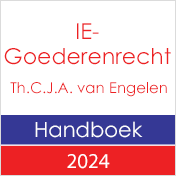B9 10758. Twee belangrijke uitspraken van het Europese Hof voor de Rechten van de Mens over mediarecht, privacy en portretrecht. 'The Court delivered two Grand Chamber judgments, in the cases of Axel Springer AG v. Germany and Von Hannover v. Germany (no. 2). Both cases concern the publication in the media of articles and, in the second case, of photos depicting the private life of well-known people.In the case Axel Springer AG (Bild published a front-page article about X, a well-known television actor, being arrested in a tent at the Munich beer festival for possession of cocaine), the Court concluded that the restrictions imposed on the company had not been reasonably proportionate to the legitimate aim of protecting the actor’s private life.
There had accordingly been a violation of Article 10. Nothing suggested that Springer had not undertaken a balancing exercise between its interest in publishing the information and the actor’s right to respect for his private life. Given that Springer had obtained confirmation of the information conveyed by the prosecuting authorities, it did not have sufficiently strong grounds for believing that it should preserve the actor’s anonymity. It could therefore not be said to have acted in bad faith. In that context, the Court also noted that all the information revealed by Springer on the day on which the first article appeared was confirmed by the prosecutor to other magazines and to television channels. The Court noted, moreover, that the articles had not revealed details about the actor’s private life, but had mainly concerned the circumstances of his arrest and the outcome of the criminal proceedings against him. Lees de uitspraak hier. In the case Von Hannover II (Princess Caroline has been trying to prevent the publication of photos of her private life in the press), the Court held, unanimously, that there had been no violation of Article 8 (right to respect for private and family life) of the Convention.
The Court observed that following its 2004 judgment in Caroline von Hannover v. Germany, the German Federal Court of Justice had made changes to its earlier case-law. In particular, it had stated that it was significant whether a report in the media contributed to a factual debate and whether its contents went beyond a mere desire to satisfy public curiosity. The fact that the German Federal Court of Justice had assessed the information value of the photo in question – the only one against which it had not granted an injunction – in the light of the article that was published together with it could not be criticised under the Convention. The Court could accept that the photo, in the context of the article, did at least to some degree contribute to a debate of general interest. The German courts’ characterisation of Prince Rainier’s illness as an event of contemporary society could not be considered unreasonable. It was worth underlining that the German courts had granted the injunction prohibiting the publication of two other photos showing the applicants in similar circumstances, precisely on the grounds that they were being published for entertainment purposes alone.' Lees de uitspraak hier.
Persbericht EHRM hier.



























































